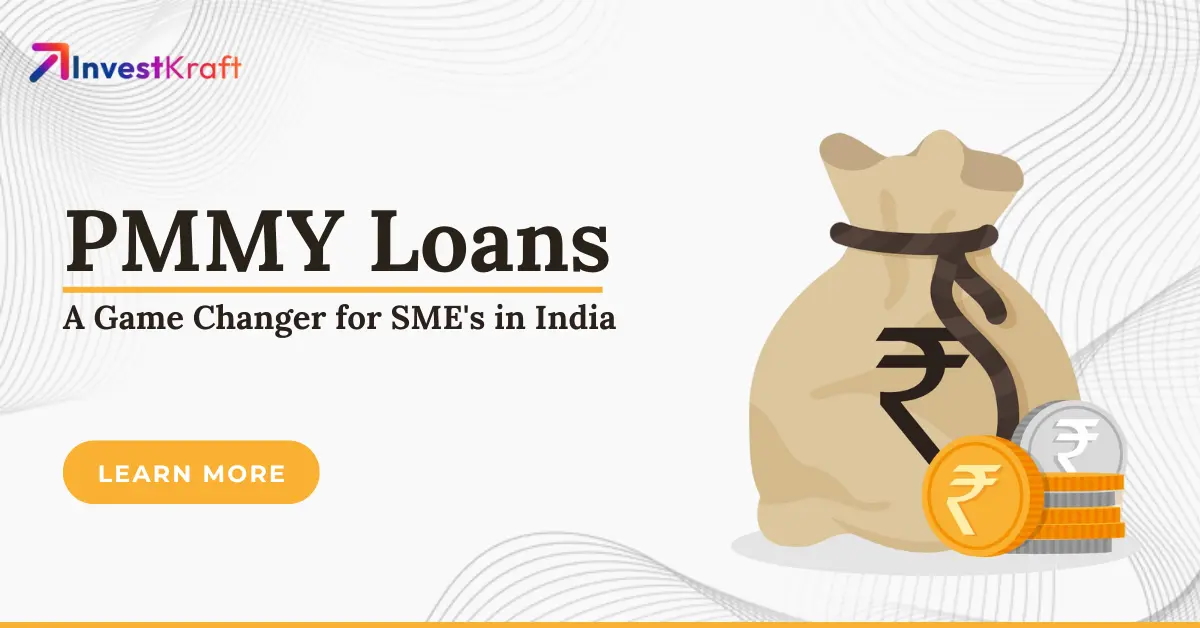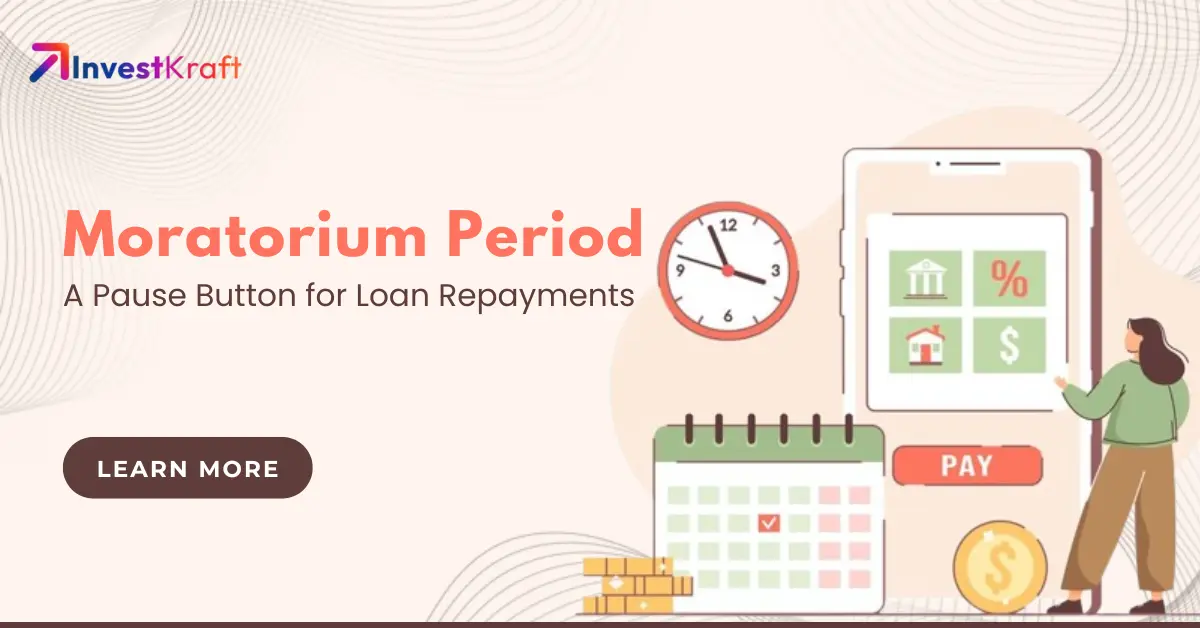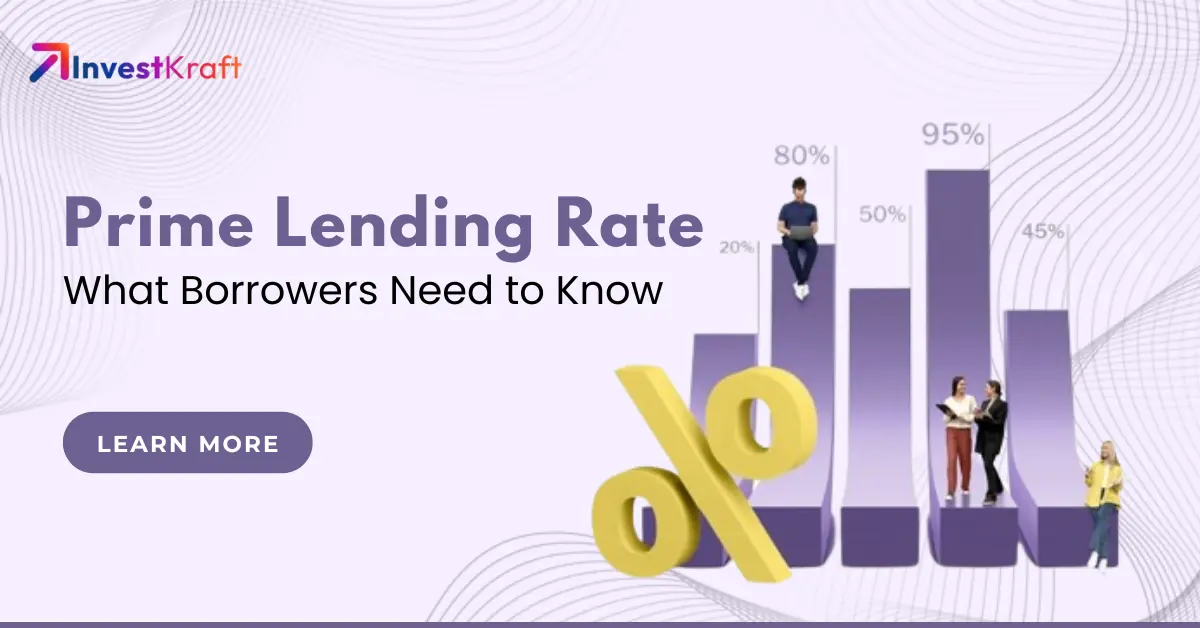Pradhan Mantri Mudra Yojana (PMMY) Loan: Eligibility, Application Form, Benefits

The Pradhan Mantri Mudra Yojana (PMMY) loan has been a game changer for small and micro-enterprises in India, providing them with the financial assistance they need to grow and thrive. This initiative offers loans to eligible individuals, allowing them to kickstart their business ventures and create a more stable financial future. With the support of this government scheme, many entrepreneurs have been able to turn their innovative ideas into successful enterprises, contributing to the overall economic development of the country.
This article provides an in-depth analysis of the Pradhan Mantri Mudra Yojana loan. It covers a wide range of subjects like the PMMY loans, eligibility, goals, different types of loans under the PMMY scheme and the common questions that arise.
Introduction to the Pradhan Mantri Mudra Yojana (PMMY) Loan
Pradhan Mantri MUDRA Yojana (PMMY) was initiated on April 08, 2015, by the Hon’ble Prime Minister to provide loans up to 10 lakh rupees to non-corporate, non-farm small/micro enterprises. The loans, known as MUDRA loans are offered by a variety of financial institutions including Commercial Banks, RRBs, Small Finance Banks, MFIs (Micro Finance Institutions) and NBFCs. Borrowers can approach any of these institutions or apply online through the official portal. Additionally, PMMY offers 3 products -
These cater to the growth and development needs of micro units and entrepreneurs in India. The PMMY loan scheme has made a substantial impact by providing support to a large number of micro-unit enterprises, with almost 10 million approved loans as of July 2024. The sanctioned amount of ₹97,298.09 Crore reflects the government’s dedication to empowering small businesses. As of July 2024, ₹92,557.28 Crore has been disbursed, directly contributing to the growth and development of these enterprises.
How PMMY Loans Can Help Your Microbusiness Thrive?
PMMY loans can provide essential support to your micro-business by offering -
1. Access to Capital: Securing funding can be a significant challenge for micro-businesses. However, PMMY loans address this obstacle by providing financial assistance of up to 10 lakh rupees. This funding can be utilized for multiple purposes such as equipment purchases, inventory acquisition, staff recruitment and marketing expansion.
2. Flexible Loan Categories: PMMY offers 3 loan categories to cater to the diverse needs of micro-businesses:
- Rishabh (Up to Rs. 50,000) - Ideal for new or small businesses with minimal capital requirements.
- Kishor (Rs. 50,001 to Rs. 5 lakh) - For established businesses to expand or invest in growth initiatives.
- Tarun (Rs. 5,00,001 to Rs. 10 lakh) - Serves established micro-businesses with growth ambitions.
3. Competitive Interest Rates: PMMY loans offer competitive interest rates, which helps reduce your monthly payments. This means you can allocate more funds towards your business.
4. Simplified Application Process: The PMMY loan application process is designed to be simple and accessible. You have multiple options for applying, including commercial banks, regional rural banks, small finance banks and microfinance institutions. Additionally, you can apply through the JanSamarth portal.
5. Improved Credit History: Timely repayments on your PMMY loan can help improve your credit history. This can be advantageous for obtaining larger loans in the future for business expansion.
What are the Loan Categories Available Under the PMMY Scheme?
The PMMY loan scheme has been divided into 3 categories - “Shishu”, “Kishore” and “Tarun”. These categories represent the different stages of business growth and development, as well as the funding requirements, of the micro-units/entrepreneurs who are beneficiaries of the scheme.
- Rishabh – It offers loans up to 50,000 rupees with an interest rate determined by the bank based on scheme guidelines and the applicant’s credit history. The loan repayment period varies depending on the bank’s options.
- Kishore – It offers loans ranging from 50,000 rupees to 5 lakh rupees with interest rates determined by the bank and the applicant’s credit history. As per scheme guidelines. The loan repayment period is decided based on the bank’s options.
- Tarun – The loan amount available under this category of the PMMY scheme ranges from 5 lakh rupees to 10 lakh rupees with the interest rate being determined by the bank and applicant’s credit history. The loan repayment period for the loan depends on the bank’s options and guidelines.
Pradhan Mantri Mudra Yojana (PMMY) Eligibility Criteria
The Pradhan Mantri Mudra Yojana (PMMY) is a scheme initiated by the Indian government to offer financial support to small and microenterprises. Here are the eligibility criteria for obtaining a Mudra Loan under PMMY -
- Business Nature: Businesses eligible for support must be non-corporate, non-farm micro or small enterprises involved in income-generating activities in areas such as manufacturing, trading, services and allied agricultural activities. This inclusion of allied agricultural activities was implemented in April 2016.
- Age: The minimum and maximum age for this requirement is between 18 and 65 years.
- Credit History: Applicants are required to have a satisfactory credit record and must not have a history of defaulting on loans with any bank or financial institution.
- Business Entity: Individuals, sole proprietorship firms, partnership firms, private limited companies and public limited companies with a turnover of up to 10 lakh rupees are eligible to apply as business entities.
- Skills and Experience: Individual borrowers are typically required to have the requisite skills, experience and knowledge related to their intended business venture. This ensures that they are equipped to effectively manage and operate the business, increasing the likelihood of success.
- Educational Qualification: This can vary based on the specific needs of the business and its activities. Certain roles may require specialized educational backgrounds while others may prioritize experience or skillset. It is important to assess the qualifications needed for each role within the context of the business’s requirements.
PMMY Loan Scheme - List of Eligible Borrowers
The list of eligible borrowers for the PMMY loan scheme is as follows -
- Individuals
- Private Limited Company
- Proprietary Concern
- Public Company
- Partnership Firm
- Entities of any other Legal Forms
Further Reading: What are the Eligibility Criteria for Mudra Loan?
How to Apply for PMMY Loan - Application Form, Process, Documentation?
Follow the steps given below to successfully apply for the PMMY loan scheme -
- Find the PM MUDRA official site by typing in “PM MUDRA official website” in your preferred search engine. Once you are on the website, look for the option to select the “Udyamimitra” portal to access the specific services and information you need.
- To apply for a mudra loan, simply click on the “Apply Now” button.
- Choose from one of the options available: New entrepreneur/ Existing Entrepreneur/Self-employed professional.
- Fill in the required details such as the applicant’s name, email address and mobile number. Once completed, proceed to generate an OTP.
After Successful Registration
- To complete your profile, you will need to provide personal details such as your name, contact information and address. For the professional details, include your work experience, education, skills and any relevant certifications or licenses.
- If you need assistance with preparing project proposals or any other help, choose the hand-holding agencies option. Otherwise, click on the “Loan Application Centre” and submit your application.
- Choose the type of loan you need - Mudra Shishu, Mudra Kishore or Mudra Tarun.
- The applicant is required to provide business information such as the name and activity of the business. Additionally, they must select the industry type from options including Manufacturing, Service Trading or activities related to agriculture.
- In addition to the requested details, please provide the owner’s full name, address and contact information. Also, kindly furnish information regarding existing banking or credit facilities held by the business, details of the proposed credit facilities being sought, future revenue and expense estimates and any preferred lender, if applicable.
- Please make sure to include all necessary documents such as identification proof, proof of address, applicant’s photo and signature, as well as proof of identity or address for the business enterprise.
- After applying, be sure to keep the generated “Application Number” for future reference.
Documents To Be Submitted to Apply for a PMMY Loan
Before you start applying for a PMMY loan, you need to have the following documents handy -
- ID Proof
- Address Proof
- Passport size photograph
- Applicant Signature
- Proof of Identity / Address of Business Enterprises
Now, you must remember that different categories of the PMMY loan require different sets of documents as mentioned in the table below -
|
PMMY Loan Category
|
Required Documents
|
|
Shishu Loan
|
Proof of Identity: Provide a self-attested copy of one of the following documents:
- Voter’s ID Card
- Driving Licence
- PAN Card
- Aadhaar Card
- Passport
- Photo IDs issued by a Government authority
Proof of Residence: Submit a recent document (not older than 2 months) from the following list:
- Telephone bill
- Electricity bill
- Property tax receipt
- Voter’s ID Card
- Aadhaar Card
- Passport of the individual/proprietor/partners
- Bank passbook or latest account statement, duly attested by bank officials
- Domicile Certificate
- Certificate issued by Government Authority, Local Panchayat, or Municipality
Applicant’s Photograph: Provide two recent coloured photographs (not older than 6 months).
Quotation of Machinery/Items: Include the following details:
- Name of the supplier
- Details of the machinery/items
- Price of the machinery/items to be purchased
Proof of Identity/Address of the Business Enterprise: Submit copies of relevant documents, such as:
- Licences
- Registration Certificates
- Other documents related to the ownership and address of the business unit, if available.
|
|
Kishore/Tarun Loan
|
Proof of Identity: Please provide a self-attested copy of your Voter’s ID card, Driving License, PAN Card, Aadhar Card, or Passport.
Proof of Residence: Submit a recent telephone bill, electricity bill, property tax receipt (not older than 2 months), or a copy of your Voter’s ID card, Aadhar Card, and Passport. These documents should belong to the Proprietor, Partners, or Directors.
Photographs: Include two recent coloured photographs of the applicant, taken within the last six months.
Proof of Identity/Address of the Business Enterprise: Provide copies of relevant licenses, registration certificates, or any other documents that verify the ownership, identity, and address of the business unit.
Bank/Financial Institution Status: Ensure the applicant is not a defaulter in any Bank or Financial Institution.
Account Statements: Submit statements of accounts for the last six months from your existing banker, if applicable.
Financial Documents:
- Provide balance sheets for the last two years of the unit, along with income tax and sales tax returns. This is applicable for all cases involving Rs. 2 Lacs and above.
- For working capital limits, submit projected balance sheets for one year. For term loans, submit projected balance sheets for the period of the loan. This is also applicable for all cases involving Rs. 2 Lacs and above.
Sales Data: Include details of sales achieved during the current financial year up to the date of application submission.
Project Report: Submit a project report for the proposed project, detailing its technical and economic viability.
Company Documents: Provide the Memorandum and Articles of Association of the company or the Partnership Deed of the Partners.
Asset & Liability Statement: In the absence of a third-party guarantee, an asset and liability statement from the borrower, including Directors and Partners, may be required to assess the net worth.
|
Latest PMMY Loan Interest Rates
The PMMY scheme does not determine fixed interest rates for its loans. Instead, it delegates the authority to lending institutions like banks, NBFCs and MFIs to decide interest rates on a case-by-case basis. Several factors influence these rates and it is important to consider them when seeking the best rate for your needs.
Factors Affecting Interest Rates
- Loan Category: PMMY offers loans under three categories:
- Rishabh - The interest rates for Shishu loans can vary from as low as 1% to a maximum of 12% per annum, with loan amounts of up to 50,000 rupees.
- Kishore - Kishore loans generally range from 50,001 rupees to 5 lakh rupees with interest rates typically between 8% and 12% per year.
- Tarun - Interest rates for the amount of 5,00,001 rupees to 10 lakh rupees typically range between 8% and 12% per annum.
- Lender: Each lender has its interest rate based on various factors, such as the cost of their funds and the level of risk associated with your loan application.
- Applicant Profile: Credit score, business vintage, loan amount and purpose are factors that can impact the interest rate you are offered as an applicant.
Conclusion
The Pradhan Mantri Mudra Yojana (PMMY) scheme is a great opportunity for aspiring entrepreneurs to launch or expand their micro business. With loans of up to 10 lakh rupees, PMMY provides vital financial assistance to non-corporate, on-farm micro and small enterprises (MSEs), helping them thrive in the market. This government initiative plays a crucial role in fostering economic growth by enabling entrepreneurs to bring their innovative ideas to life.
Frequently Asked Questions (FAQs)
Q1: What is the maximum loan amount available under the Pradhan Mantri Mudra Yojana (PMMY)?
A: The Pradhan Mantri Mudra Yojana is a scheme by the Government of India that allows small borrowers to obtain loans up to 10 lakh rupees for non-farm income-generating activities from banks, MFIs and NBFCs. Typically, these loans are provided by banks under Micro Small Enterprises without the requirements of collaterals.
Q2: What is the interest on a ₹50,000 Mudra loan?
A: Mudra loan interest rates vary depending on factors such as the lending institution, loan type and the borrower’s profile. Starting from 7.30% per annum, they may also be lower for women with a 25 basis point reduction offered by certain lenders.
Q3: How to get a loan under the Pradhan Mantri Mudra Yojana?
A: To apply for a PMMY loan, the applicant can go to a bank, microfinance institution or non-banking financial company. The lender will evaluate their eligibility and creditworthiness to finalize the loan approval.
Q4: How many days does it take for a Mudra loan to get approved?
A: The turnaround time for mudra loans is approximately 7 to 10 business days, which is determined by the individual’s credit profile and submitted documents. This time frame is consistent across various banks and non-banking financial companies in the country.
Q5: What happens if the Mudra loan is not repaid?
A: Non-payment of mudra loan has legal consequences. The government can take action against defaulters through civil suits and criminal proceedings, demanding full loan repayment with interest and penalties. The loan guarantor may lose collateral. Also, defaulting on loans damage credit scores and affects future loan eligibility. Finally, criminal proceedings may result in fines or imprisonment.
Q6: What should be the CIBIL score to get a Mudra loan?
A: When applying for a mudra loan, banks and NBFCs do not typically check CIBIL scores, so having a good score is not mandatory. Nonetheless, it is advisable to maintain a positive credit profile for better chances of loan approval.
Q7: Which bank provides Mudra loans?
A: Mudra loans are offered by various financial institutions such as public sector banks, private banks, regional rural banks, cooperative banks, NBFCs and MFIs.

Author: Abhik Das
Abhik Das is a versatile content writer with over 5 years of experience crafting engaging and informative content across diverse industries. His expertise spans the fields of ed-tech, pharmaceuticals, organic food, travel, sports, and finance.
Here's what sets Abhik apart:
Content Versatility: Able to adapt writing style and tone to suit various audiences and content needs.
SEO Proficiency: Creates content optimized for search engines, ensuring discoverability and organic traffic.
Deep Research: Conducts thorough research to ensure content accuracy and credibility across complex topics.
Engaging Storytelling: Captures reader interest with clear, concise, and compelling writing.
Abhik's diverse background empowers him to deliver insightful content across a wide range of subjects. Whether you're seeking engaging explainer pieces on the latest financial trends, informative guides to organic food choices, or captivating travelogues, Abhik has the expertise to craft content that resonates with your audience.
















